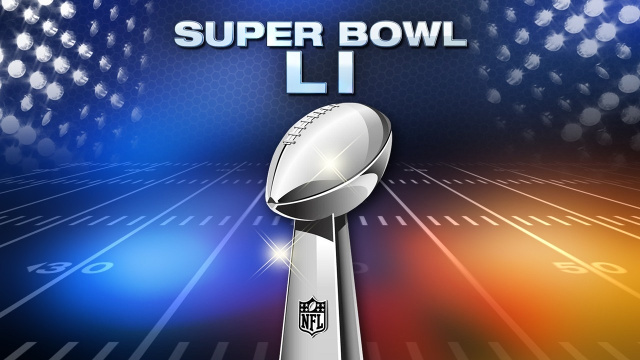Yesterday. Super Bowl Sunday, the day the Atlanta Falcons made the worst kind of history, by coughing up the biggest Super Bowl lead by far – more than double the previous record. An epic, 25-point collapse (caused by the Nintendo Switch or not) is really all that anyone is talking about. It's a choke job so bad that all you have to do is Google the word "choke," with no context, and you'll see dozens of articles about the Atlanta Falcons Super Bowl loss to the New England Patriots.
But, if you thought the choke jobs were restricted to the realm of sports, think again. Football teams do not have a monopoly on embarrassingly bad second halves, nor are video games immune to this phenomenon. So what video games are most guilty of it? Which games showed the most promise only to absolutely screw the pooch before the end credits?
Here's a look at gaming's top 5 greatest choke jobs.
5. Assassin's Creed
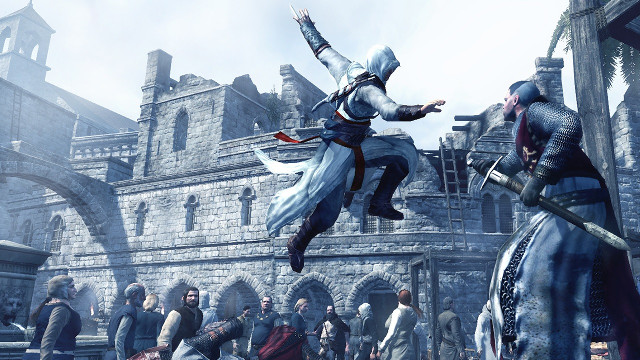
Everyone remembers the original Assassin's Creed to be the start of a largely solid franchise, but little more than a concept in and of itself. It starts off so strongly, with a huge open-world-esque fictional city set during the Crusades in the middle east. You do some recon, interrogation, stealing of important items, all to set up the premiere event: the assassination.
And it's glorious. You murder a corrupt public figure in spectacular fashion and then head for the hills. It's one of the most memorable gaming experiences I've had in my lifetime, pulling off that first assassination. I was hooked, brimming with anticipation as to what Ubisoft could possibly have in store for me next.
Then, in the next cities, I do some recon, interrogation and stealing of important items, all to set up the premiere event: the assassination. Sound familiar? While the story, characters and cutscenes are different each time, you're doing what is essentially the exact same thing, making the subsequent acts feel like cheapening agents to a commanding start. Oh well, at least subsequent games made up for it, which is not something that can be said about every game on this list.
4. Dark Souls
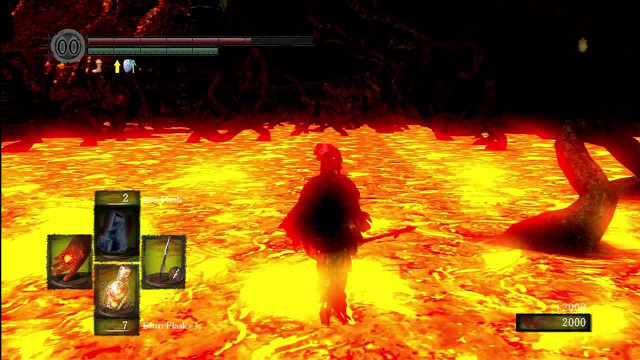
I know that most video game writers are too scared to say something bad about a Souls game, but sometimes it's just dishonest not to. That was the case when the world collectively pampered Bloodborne, too afraid to point out its terrible performance and disappointing return to the grass-based system as opposed to the much more desirable Sunny D.
And that was the case with the first Dark Souls. Of course, the game was largely brilliant, and I wouldn't dare to criticize its difficulty, but anyone being honest with themselves has to admit that the second half of Dark Souls has some serious issues. It was grating to the eyes, with phosphorescent yellow lava levels that made it a chore to play just because you had to look at the screen in order to do so.
Adding to the overall rushed feeling of the second half, the enemy design and variety was completely uninspired, with areas populated by hoards of the exact same beast. For many, this was easy enough to shrug off, feeding into the more grindy nature of some Souls games. For many others, myself included, this was enough to completely sour what was otherwise an incredible experience. Still, though, this was another case where later games completely forgave its shortcomings.
3. Thief (2014)
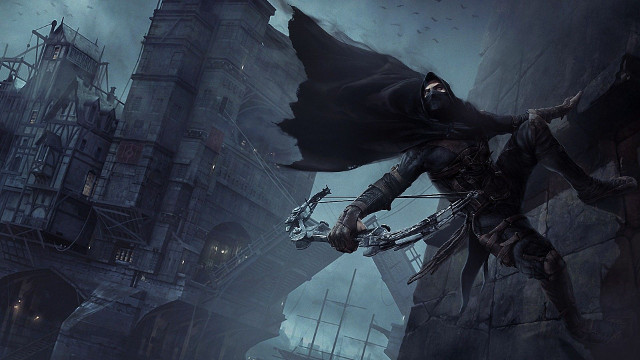
Jumping the shark usually happens to a game's sequel. The studios, developers or whomever else pulling the strings as part of a think tank know they have a profitable IP, but don't know how to best capitalize on it, so they resort to upping the ante to ridiculous levels or introducing crazy elements that weren't at all set up by its predecessor. But to completely jump the shark within the runtime of one video game … that takes a special kind of choke job.
Oh hey there, Thief.
The first half of Thief, contrary to popular opinion, was a great success and a promising start. It's plot and gameplay mechanics, while largely a rip-off of Dishonored, were enjoyable and grounded, and Thief's custom difficulty settings let you up the ante as you so desired in a way that hasn't since been successfully replicated.
But then the second half happened, with a god-awful boss fight set up by a plot with ten too many twists and turns, particularly those of a supernatural variety that felt incredibly out of place in what was otherwise a gritty, stealth burglary simulator. It was enough that even I, probably among the most favorable to the Thief reboot, can't in good-conscience recommend the game to anyone.
2. Bravely Default
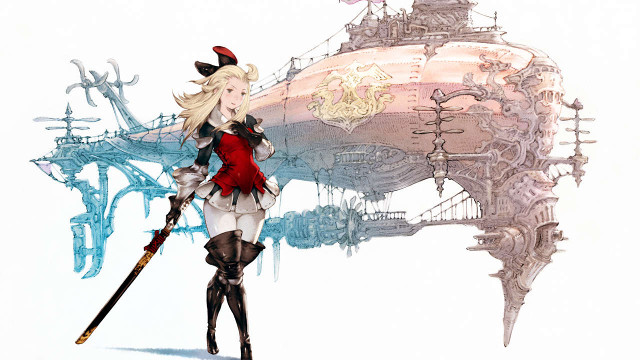
This will sound familiar, but trust me it's much worse. Ignoring the fact that the previous sentence is a perfect descriptor for what's wrong with the game, I have to again bring up the original Assassin's Creed when talking about Bravely Default. They each have a problem with repetition, with Assassin's Creed giving you essentially the same tasks in a different setting with slightly different plot details.
That bar was shattered by Bravely Default, which, over the course of the second half, tasked you with doing the exact same things, in the exact same settings, with the exact same plot details. Same boss fights, same cutscenes, same everything. How did they justify this? Why alternate dimensions, of course.
I am unable to adequately describe the level of laziness that goes into designing a second half such as that. It lacks the creativity or meaning of other alternate timeline stories, like the third Harry Potter, Dishonored 2's A Crack in the Slab level, or even back to the future. In my mind, a parallel dimension should actually have you doing things parallel to the first dimension, not simply repeating them. You had me at hello and you lost me when you said hello ten more times.
1. Condemned 2: Bloodshot
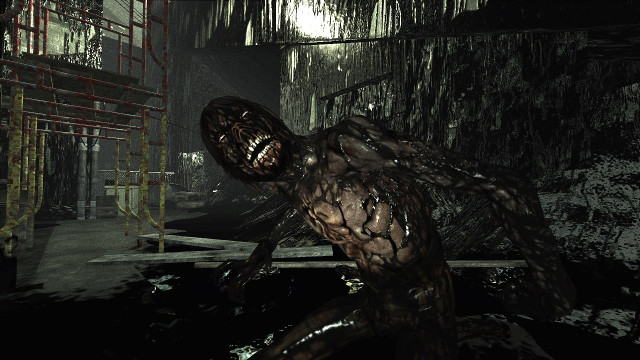
Of all the choke jobs in video gaming, this has to be the worst. Following up on the fun, but flawed Condemend: Criminal Origins, Condemned 2: Bloodshot didn't have to do much to succeed. It had to beef up the crime scene investigation, which was essentially just a "click OK to solve the mystery," in the first game, and eliminate some of the more formulaic fetch-quest-type tasks. Done and done.
But then, any grounding in reality is thrown out the window, the main character gets unexpected super powers (giving you the ability to kill enemies by screaming at them) and all the qualities that made the first half of the game interesting are printed on toilet paper and sold en masse.
You like subtle atmospheric horror with visceral melee combat and innovative crime scene investigation? I'd suggest not playing Condemned 2 past the halfway point, because there is nothing after that that even slightly resembles subtlety. And this is all a crying shame, too, because the first half is one of the best games I've ever played, easily game of the year, and has the most memorably elegant horror game segment of all time (just Google "Condemned 2 bear").
And it's all for naught. What could have been the best game of its respective year, and years to come, became one of the worst with a few strokes of the developers' brushes. Actually, thinking about this makes the Atlanta Falcons incredible fiasco a lot more palatable, and that's saying something.
